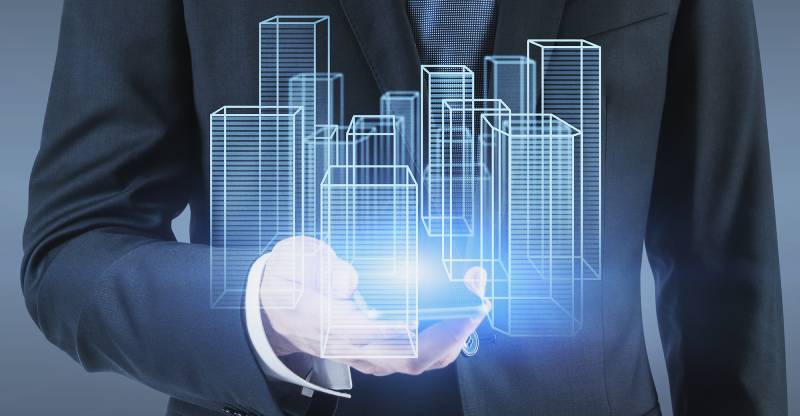Property management software has revolutionized the way landlords and tenants interact. This technology streamlines the process of managing properties, allowing both landlords and tenants to benefit from its use. From managing the tenant screening process, and streamlining rent payments to enhancing communication between the two parties, property management software is a valuable tool that can improve the landlord-tenant relationship. 
I have been living in a rented flat, and I can totally say that rent management software is what the need of the hour. There is a big number of people renting properties. Some are just not so professional but some are very professional as they have so many properties to rent out. Thus, management software would help well in managing everything. I will be discussing this further in this article.
The Advantages of Technology in Property Management
Increased Efficiency
Tenants can use online portals to pay rent, submit maintenance requests, and access other important information about their lease agreement and building policies. This reduces the time needed for manually processing requests, which allows landlords to focus on other aspects of their business. In addition, automated systems allow for more consistent communication between landlord and tenant, leading to better relationships overall.
Data Analysis
Data analysis is becoming increasingly important in property management. With powerful analytics tools at their disposal, landlords and property managers can gain invaluable insights into how their properties are performing, as well as what areas need improvement. For example, data analysis can provide valuable information on rental trends and occupancy rates which can then be used to make informed decisions about pricing strategies or other investment opportunities.
Improved Communication
Property management software also improves communication between landlords and tenants. This technology provides an efficient platform for both parties to share information quickly and easily via text or email. It also allows landlords to provide updates about maintenance issues or other important topics in real time, without having to wait for a response from the tenant or having to make multiple phone calls or visit properties in person. This improved communication can help reduce misunderstandings and disputes between landlords and tenants.
Maintenance Tracking
Property management software makes it easier for landlords to track maintenance requests from tenants. With this technology, it’s simple for landlords to keep track of who requested what type of service, when they requested it, how much it will cost them, etc. Having access to this information helps landlords stay organized while ensuring that they are providing timely responses to maintenance issues, as well as accurate billing statements at the end of each month. Such tracking is quite helpful for both the landlords and tenants.
Increased Mobility
With this type of software, landlords and tenants can access their property management needs from any location, using a computer or mobile device. This allows for greater flexibility and convenience as both parties can manage their properties and communicate with one another from anywhere.
This feature can be especially useful for landlords and property managers who are frequently on the go. For example, a landlord who frequently travels for work can still manage their properties remotely using a mobile device. This allows them to keep track of rent payments, maintenance requests, and other important information, even when they are not physically present at the property. Similarly, tenants can also benefit from increased mobility. They can use a mobile app to submit maintenance requests, pay rent, and communicate with landlords, even when they are away from home.
Overall, the ability to access property management information and communicate with one another from anywhere is a key advantage of property management software, and it can greatly improve the efficiency and convenience of property management.
The Challenges of Technology in Property Management
Cost is one of the biggest challenges associated with incorporating technology into your property management. Depending on the type of software you use and how many units you manage, investing in a comprehensive system could be expensive and you may not recoup your initial investment right away if you don’t have enough properties or tenants utilizing its features. In addition, there is always a risk that a new system could have bugs or glitches that need to be fixed before it’s ready for use by tenants or landlords—which means additional costs down the line if something goes wrong during implementation or operation.
Another challenge is security—both from data breaches (which can lead to identity theft), as well as from malicious software programs designed specifically to target rental property systems (like ransomware). It’s important for landlords to ensure they have adequate protection against any potential threats before introducing new technologies into their rental businesses. Otherwise, they could end up being held liable if something goes wrong due to negligence or lack of proper security measures being taken on their end.
Additionally, technology has also made it possible for landlords to reach a wider audience and attract more tenants. With the ever-evolving technology, property management is becoming more sophisticated, and landlords and property managers who incorporate technology into their operations will be able to stay ahead of the curve and remain competitive in the industry. It is essential for landlords and property managers to keep up with the latest technology trends and adapt to new tools that can help them manage their properties more efficiently and stay ahead of the game.
So, what I would say is managing the renting, a software program is better as compared to what you do manually. It saves your time and does the jobs automatically. This is what technology does; making things easier.
In conclusion, technology has greatly impacted the property management industry, making it more efficient and cost-effective. From property management software to digital marketing, technology has helped landlords and property managers automate many of the tasks associated with managing rental properties. This has led to increased productivity, better communication with tenants, and more accurate and up-to-date information.







Add Comment